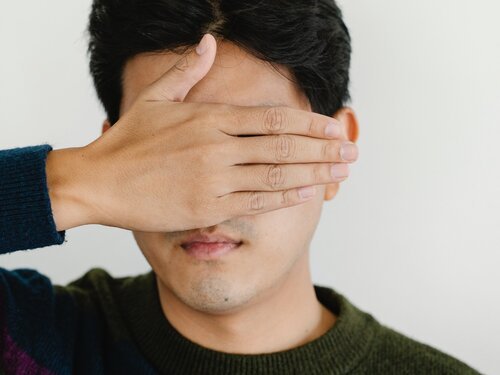
Educational Blogs from Our Mental Health Therapists
Learn about common challenges, including depression, anxiety, relationships,
trauma, and more, written by Maryland therapists!
Topic
- Anxiety
- Art in Therapy
- Biases
- Boundary Setting
- Brainspotting
- Burnout
- Business Owners
- COVID-19
- Careers
- Children & Teens
- Cognitive Behavioral Therapy (CBT)
- College Students
- Communication Skills
- DIY Crafts
- Depression
- Dialectical Behavior Therapy (DBT)
- Emotional Regulation
- Faith-Based
- First Responders
- Grief and Loss
- Highly-Sensitive Person
- International Clients
- Internships
- LGBTQIA
- Men's Issues
- Mindfulness
- Motivation
- Neurodivergence
- Online Counseling
- Oppression
- Parenting
- Recovery
- Relationships
- Resources
- Sex Therapy
- Trauma and PTSD
- Women's Issues
- Workshop
Ways to Improve Your Time Management Skills to Reduce Stress
Hectic schedules can be quite distressing and intimidating. Sometimes it can feel like we have a million things to do and no time to do it, or it may feel like we have so many things we want to do but are unsure when to fit it in. Having strong and reliable time management skills is very important for reducing the stress associated with situations like this. Time management skills can be beneficial in a variety of settings such as college, graduate school, parenting, careers, social activities, and engaging in self care. Strong time management skills can help to make sure you complete the things you have to do, and find time to do the things you want to do.
What is Cognitive Behavioral Therapy & How Does it Work?
In the field of counseling there are an endless number of approaches that are used for working with clients and various mental health concerns. Of these approaches, one of the most commonly used and talked about is Cognitive Behavioral Therapy (CBT).
How to Care for Yourself When Someone in Your Life Will Not Seek Therapy
Sometimes, the people we care about are struggling with their mental health and are not willing to seek help. If you have already tried talking to them and the conversation did not go well, you may be left feeling frustrated, confused, and unsure of how to proceed. Unfortunately, there are times when other people’s unwillingness to seek counseling causes distress in our own lives. This article will talk about how you can look after yourself when you are feeling the burden or ramifications of someone close to you not seeking therapy.
How to Encourage Someone to Seek Counseling in an Open and Honest Way
Sometimes the people closest to you struggle with their mental health, and it can be difficult to see them struggle. It can be equally difficult to initiate a conversation about what you’re observing. If you really want your friend or family member to get the help they need, however, this conversation is an important step.
Signs and Symptoms of Depression & What to Look For
Depression is a mood disorder that includes sadness, feelings of emptiness, irritability, and physical and cognitive changes. These symptoms can be distressing and disrupt your day-to-day life. These symptoms can also vary in severity and intensity. Depression sometimes creates difficulty getting out of bed, consistent crying, severe fatigue, and complete social withdrawal. Here are the symptoms of depression that can be both severe and subtle.
Managing Your Mental Health and Taking Care of Yourself as a College Student
Taking care of yourself and your mental health is always important, but it is extra important while in college. Making sure that your mental health is stable is beneficial to you while in college because it will help you better balance all of your responsibilities. Conversely, if you are struggling with your mental health, it can contribute to issues such as reducing productivity, focus, and overall performance in school. Here are some ways that you can try to take care of your mental health while pursuing your degree.
Common College Stressors and How Mental Health Therapy Can Help Manage Your Anxiety
While it’s not uncommon to hear people talk about college as the best years of their lives, the reality is that college can be an incredibly stressful time for young adults. Because of the many positive things we hear about others’ college experiences, college students may experience surprise at the actual number of stressors involved in college life. Here, you’ll find a list of common college stressors faced by students and ways that mental health therapy can help.
Before You Ghost Your Therapist...
No one likes to be ghosted, not even your therapist. If you have been thinking about ending counseling services with your therapist but you don’t know how to, consider this before you ghost them.
How to Creatively and Effectively Address Stressful Issues Using Art in Therapy
When incorporating art into therapy, the emphasis is on the artmaking process. It’s not about how well you can draw or how talented you are. Instead, we focus on the thoughts and emotions that surface during the activity. For a better understanding of how this works, let’s look at a common art activity, also known as an art directive.
How Do I Know If I Am Having a Panic Attack, and What Can I Do About It?
Having a panic attack can be really unsettling. Sometimes people have a sense of impending doom or think they’re having a heart attack. They may also find themselves going to the emergency room as a result. This article will help you identify symptoms of panic attacks as well as some strategies you can use to help.
Recognizing Both When and How to Set Boundaries with Those Around You
Ever find yourself in a situation where a person asks something of you, and against your better judgment, you agree to it? For example, a friend asks you to go out to a late-night dinner, but you know you have an important meeting in the morning. You find it difficult to refuse, so you agree to meet with this friend anyway. This could be because you find it difficult to set healthy boundaries with those around you.
What Are Personal Boundaries, and How Do You Set Them for Yourself?
Boundaries are the rules or guidelines that we identify to keep ourselves safe and healthy. They help us create order and allow us to be responsible for our own actions, even if they are not always enjoyable. They allow us to identify those limits that are acceptable for ourselves as a way of engaging in self-love and respect.
Why Working with a BIPOC Therapist May Be Right For You
When getting ready to start a journey in therapy, we think about our positions at the beginning. That includes: what type of counselor we are looking for, what kind of therapy style we would want to receive, and what kind of perspective we might gain from our therapist. There are many elements to consider when finding a therapist that best fits you. Here are some reasons why working with a BIPOC therapist may be suitable for you.
Quick Everyday Mindfulness Activities
Mindfulness is about working to be present in your current activities and moments. Additionally, it has been shown to help alleviate the intensity of anxiety symptoms. Sometimes mindfulness activities can seem daunting to fit into your schedule, or complicated to execute. Here are some quick ways that you can incorporate more mindfulness into your day.
Eat. Gain. Wait.
What are the odds? The world is facing a pandemic, the likes of which have not been seen since the 1918 influenza pandemic. And as we slowly re-enter the world, so are trillions of Brood X cicadas emerging from the ground after 17 years. The irony is that as the cicadas emerge and leave their exoskeletons and future brood everywhere, we, too, are going through a metamorphosis as we re-enter the world post-pandemic.
Chinese Culture and The Stigma of Counseling
It’s not uncommon for people in the Chinese community to experience doubt or uncertainty about the idea of receiving counseling services. People may feel uncomfortable seeking help for their mental health issues when they are experiencing something difficult in their lives. While counseling can be helpful for addressing stressors and mental health concerns, there are a number of reasons why people may not be seeking out the counseling services that can help them. In this blog, I’ll be talking about 5 barriers to seeking mental health therapy in the Chinese community, and 5 reasons why people should consider counseling services.
The Lies We Tell Ourselves
We all have lies we tell ourselves, whether it’s about ourselves or other people, big or small. “I’ll remember to put gas in my car before work/morning school drop off.” “This job/ relationship isn’t so bad.” “I’m only going to stay for one drink, and then I’ll go home.” “So-and-so’s drinking/drug use isn’t that bad.” The lies we tell ourselves have a way of being the tip of an iceberg. There is much more happening beneath the surface than we realize. What if underneath the tip of that iceberg is a larger pattern? Often times this is the case with one "iceberg" being accompanied by many others. How, though, do you know if you’re floating in the ocean surrounded by icebergs?
Re-Entry Anxiety. The Struggle is Real!
With advancements in medicine, vaccines for COVID-19 are now available and have been distributed to more than 87.6 million Americans. This means more people are venturing out and enjoying the people, places, and things they have missed out on for the past year. But for some, the idea of leaving the comfort and safety of home is stressful. The idea of moving around in the world in the midst of an unseen virus can be daunting and debilitating.
Coloring Pages to Help Ease Your Mind
Nowadays, there are so many methods of de-stressing and spending our down time. We have television, smartphones, more nature-based activities such as hiking, jogging, or sightseeing, amongst many others.
The fact of the matter is that there is no right or wrong way to de-stress and relax, as we’re all different and we all have our own hobbies, preferences, and passions! Fortunately, there’s something for everyone, no matter what that may look like. Sometimes, trial and error have to be done to find the right activity for you.
Helping the Helper: Facilitating Mental Wellness for Police Officers
Every day, police officers are responding to critical incidents that can impact their health and mental well-being. Sometimes the impact is immediate and evident; other times, it’s insidious and builds over time. This can lead to officers developing poor coping mechanisms, physical problems such as digestive issues, and experiencing symptoms of post-traumatic stress disorder (PTSD). What can police departments do to help the helper?




















